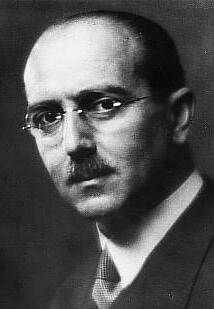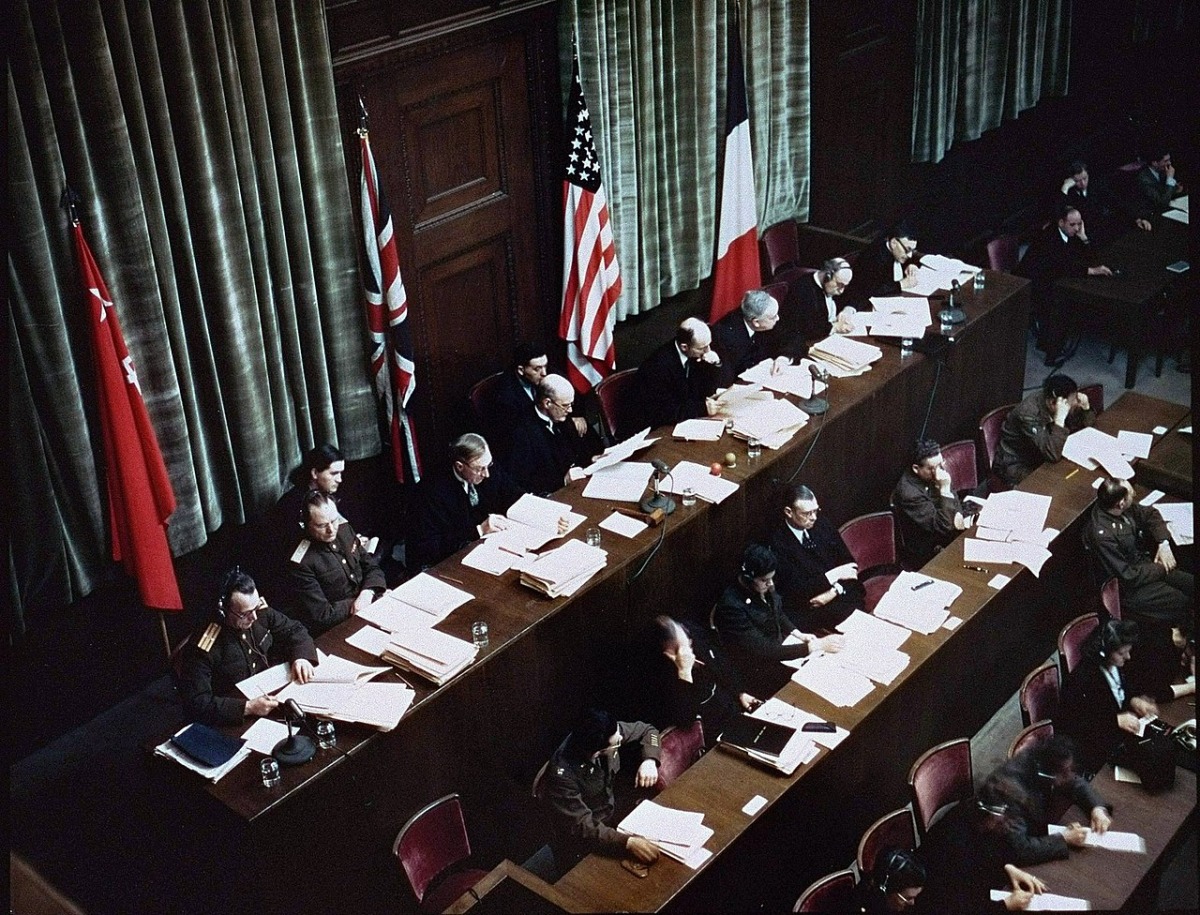This article is a response to Supreme Court Justice Gerard Hogan’s Annual Hale Lecture in Trinity College, Dublin in November 2023 on the on the topic of: ‘Grundnormen in UK and Irish Constitutional Law,’ and I thank him for sending it to me.
The grundnormen is a creation of the legendary Austrian jurist Hans Kelsen. He is viewed by many as the greatest figure in Jurisprudence of the 20th Century. For his own part, in the mould of Justices Niall McCarthy, Adrian Hardiman and Declan Costello, Gerard Hogan is, in my view, our only current top class Irish judge, and a man for whom I have great respect.
However, Hogan’s paper, although a brilliant piece of work, is profoundly unsettling not as such in what it is right about, but in terms of what it is wrong about, largely by omission or occlusion, i.e. what it does not say.
He frankly concedes that the UCD lectures he received in jurisprudence failed to equip him with an understanding of the relevance of John Rawles or even The Natural Lawyer, John Finnis, nor does he reference radical jurisprudence, or indeed the éminence grise of 20th century legal philosophy, Ronald Dworkin. Thus, Hogan emerges as an arch positivist – as of course was Kelsen – a literalist and strict constructionist. It is fair to describe him as a black letter lawyer.
Kelsen was the purest and most consistent of the positivists in emphasising the precise distinction between law and the domains of politics and morality, with one significant aberration on which more later. It is called a pure theory of law, Kelsen argued, because it only describes the law and attempts to eliminate from the object of this description everything that is not strictly law: Its aim is to free the science of law from alien elements. This is the methodological basis of the theory.

Hans Kelsen 1881-1973.
Kelsen: The Pure Theory of Law
It is perhaps unsurprising that one of Hogan’s instructors in jurisprudence while in UCD, Professor John Kelly, in a superb posthumous A Short History of Legal Theory (Oxford University Press,1992), expresses equally bafflement with post-positivism. It is merely an afterthought in that book. Well that is UCD.
Likewise, consider Adrian Hardiman’s apparent chastisement of John Rawls in his judgment in the seminal 1991 Sinnott case for viewing political philosophy as a branch of jurisprudence:
[t]heorists of this view consider that they can provide a body of principles which can be interpreted and applied by courts, to the virtual exclusion or marginalisation of the political process…I[f]judges were to become involved in such an enterprise, designing the details of policy in individual cases or in general, and ranking some areas of policy in priority to others, they would step beyond their appointed role.
Also, the reference to Lord Denning’s subtle dismissal of jurisprudence at the outset of Hogan’s paper is at one level a revelation of the standard wisdom of practising lawyers that only positivistic jurisprudence is relevant to court cases.
When the U.K. Supreme Court overturned Boris Johnson attempt to suspend parliamentary scrutiny by proroguing it, Lord Pannick KC, the advocate in the case, gave a most revealing and rare interview after the event. In a sense Hogan’s argument is about where they stretched matters too far. I disagree.
The problem with Hogan/Kelsen, and positivism more broadly, is, fundamentally, the cleavage between law and morality and/or law and politics, which are treated as if they are separate domains and not relevant to the subject of jurisprudence.
Hogan also purports not to understand the Natural Lawyer. When it comes to John Finnis I agree. Finnis argues unconvincingly that the law should reflect self-evident goods such as marriage involving sexual congress, which has as its aim the production of children. In short sex for the sake of sex, not for conception, is not good, because it does not conform to the common good of friendship, which is intrinsic to heterosexual congress within marriage, or the good of parenthood.
Jeremy Bentham like many positivists regarded natural law as ‘nonsense upon stilts;’ or as the other positivist John Austin suggested: if you invoke in a court room that an act is contrary to natural law a judge will indicate the inconclusiveness of your reasoning by hanging you. Many are also sceptical, as they ought to be, of inserting the values of The Iona Institute into the Irish Constitution.
But that does not answer the question of morality or politics as an aspect of jurisprudence by a process of legitimate legal interpretation. This is the interpretation of texts in the sense of the grand style judge, mentioned by Karl Llewellyn, who defers not just to literalism, but also to policy and principle.
Thus, Hogan effectively dismisses John Rawls and Ronald Dworkin, Marx’s Grundrisse and the legal realist perspective on policy from legal interpretation. Hogan also falsely invokes Oliver Wendell Holmes as a positivist. He was in fact the founder of legal realism – the forerunner to Llewellyn – who said, ‘The prophecies of what the courts mean in fact are what I mean by the law.’
It is, however, brave of Hogan to attempt to define the mystical grundnorm. In Ireland it can be interpreted as the Constitution, based on popular sovereignty, or parliamentary sovereignty in the UK. But at its most abstract level the grundnorm is that which is responsible for the historically first constitution, in Kelsen’s own words.
So, why does that create problems? First, and not least, the concept of original intent and the intentions of the Founding Fathers, is intrinsic to US jurisprudence, especially through the likes of Amy Coney Barrett. This involves a deference to long dead people or long dead intentions in different historical circumstances, an approach which Ronald Dworkin has rightly criticised.
Kelsen, like indeed Hogan, was in an extracurricular sense far from apolitical. He was a Jewish intellectual and supporter of Weimar Germany. However, he believed, as Hogan does, in the essential goodness of the state. Although, in fairness Hogan has sagely warned about the denudation of due process by the Irish judiciary. In my opinion Kelsen was, and Hogan is, over-wedded to the view that states have duties to allow rights, but only on its conditional fiat. I cannot accept that at face value for it assumes the state apparatus in its present incarnation protects rights, which in the case of Ireland it clearly not the case.
It assumes the Irish state has a tinsel of legality. Yet with our corrupt police force, dysfunctional justice department, populist leadership, and compliant judges we are entering a period of anarchy I fear.

The Nuremberg Trials.
Nuremberg Trials
Curiously, Hogan does not mention Keisen’s famous moral detour, where he contorted positivism to justify the jurisdiction of the Nuremberg War Crimes Tribunal. Although Kelsen fundamentally disagreed with the legal basis for the assumption of authority and the way in which individual responsibility was not more differentiated, he defended the Nuremberg Trials. Contorting the principle of retroactivity, he argued the Nazis knew at the time what they were doing was immoral and not innocent. Thus, he created an exception to retroactivity, which is a cardinal violation of positivism, and indeed that amorphous notion, the Rule of Law; for which he has been heavily criticised by other positivists such as Joseph Raz.
Hogan quotes another positivist, Jonathan Sumption at length in dissent at the prorogation of parliament case around the necessity to defer to parliament and the Rule of Law, or ‘the people’ as in Ireland. This should apply only if parliament is entitled to deference, which it is not in my view in Ireland, and only marginally so in the UK.
Judicial review should protect against executive action or ouster clauses removing the jurisdiction of the courts, as in the UK. The Irish courts do not apply judicial review with rigour, and certainly not in a fashion similar to the mandatory orders in South African or India to enforce shelter, housing and health care rights. They also defer to the notional expertise of immigration tribunals and police decisions.
Hogan has previously referenced the obliteration of due process in Ireland, and indeed the constitutional dispensation has provided scant support for those whose privacy rights have been violated.
It is also notable that Hogan discusses the jurist, Carl Schmitt. Schmidt famously argued against emergency power clauses and secret laws, and yet our courts in camera last year approved of twenty-for-hour surveillance of the entire population, and we await the extension of the Special Criminal Courts. An unspecified emergency has been referred to by Minister Helen McEntee. Perhaps Hogan knows what this is.

John Rawls 1921-2002.
John Rawls
In my view, the most important book of political philosophy since Karl Marx’s Grundrisse is John Rawls’ A Theory of Justice (Harvard University Press, 1971).
The Rawlsian approach is to pose a question: where people are placed behind a veil of ignorance wherein they cannot know what their personal circumstances will be, how would they chose to order their society?
He suggests that most people would choose the maximum number of liberties, as they would not enjoy living in a society where civil liberties are not adequately protected. Secondly, he argues that most would choose some measure of wealth edistribution in favour of the disadvantaged.
If you were to be born a sub-Saharan Africa, or Ireland for that matter, you would surely want some measure of social protection. This principle is despised by neoliberals, and is central to the arguments in favour of housing rights, health care rights, food rights and a civilised society.
Thirdly, Rawls argues for equality of opportunity and the elimination of self-advancement based on birth, family ties or social position.
Rawls adds an additional idea, The Just Savings Principle, wherein we cannot denude the Earth for future generations. However, Amartya Sen, in The Idea of Justice (Harvard University Press, 2011) argues that Rawls fails to address the reality that the achievement of a Rawlsian society is resource dependent. Clearly, we need to build a just society based on our capacities and needs.
Ireland is among the richest countries in Europe, yet successive governments have permitted rampant homelessness and moveable refugee shelters. Surely these ongoing violations require mandatory orders?

Codicil
As a codicil, Hogan references the Irish Constitution, and has written the definitive text on the subject, but at this stage all that wonderful analysis seems to amount to a Tristam Shandyesque cock-and-bull story. The problem is positivism: positivism in an age of draconian laws; positivism in a crypto-fascist age.
Thus, when Hogan suggests popular sovereignty as a grundnorm, he should look squarely at the Gorgon’s Head and the rampant Populism that neoliberal policies have produced.
Populism is not an acceptable juridical dispensation when all civility is lost, as in fact Sumption hitherto argued. The law becomes, as the jurist Eugen Ehrlich argued, in a criticism of Kelsen, a mask for brute force. We are right because we are powerful: macht geht vor recht as Bismarck put it.
The fundamental questions are whether the gatekeepers, including the judges, are really aware of the social realities, and are they attempting to achieve a just and decent society. Gerard Hogan should bone up on Rawls, Dworkin, Legal Realism and even Marx’s Grundrisse, in my view a far more convincing abstract analysis of the role of law in society than Kelsen’s Grundnorm.




